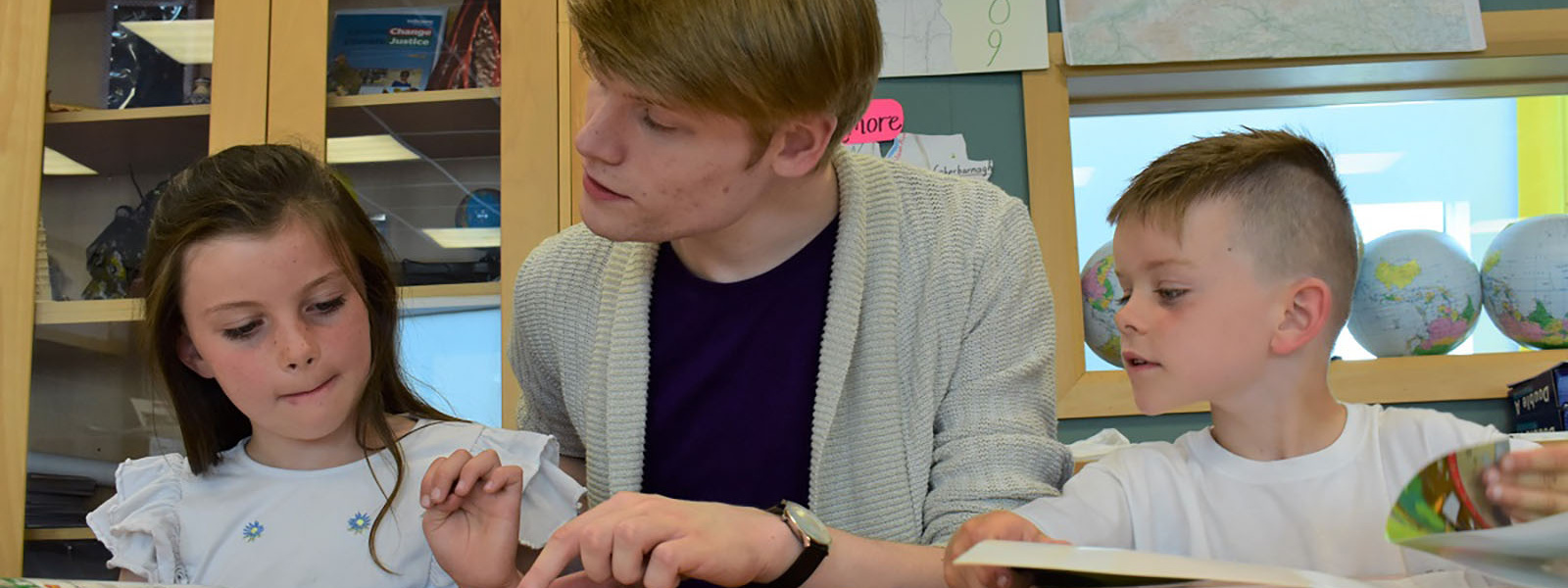BA in Early Childhood Care & Education (International applicants only)
PLEASE NOTE: This programme page is for International Students/students from abroad only who wish to study this programme in Ireland. It is not relevant for CAO applicants. Relevant programme page for CAO applicants may be found in the Undergraduate section and is labelled with a CAO code.
Places Offered: Up to 30
- Programme Overview
- Programme Content
- How to Apply
- Ask a Question
Programme Overview
The BA in Early Childhood Care and Education is a full-time, four-year, honours degree programme, designed to provide an exciting and challenging programme for those interested in working with young children, from birth to six years of age, in a range of educational settings. It provides a highly-regarded qualification in this most rewarding area, and was developed in response to contemporary developments in the field of early years education both in Ireland and internationally.

The Importance of Formative Years
The College recognises that quality provision in the early years is crucial in facilitating each child’s development towards their full potential. According to Síolta, the National Quality Framework for Early Years’ Education: “The competencies, qualifications, dispositions and experience of adults, in addition to their capacity to reflect upon their role, are essential in supporting and ensuring quality experiences for each child. This demanding and central role in the life of the young child needs to be appropriately resourced, supported and valued.” (Centre for Early Childhood Development and Education, 2006). The benefits accruing from quality early childhood care and education apply to all children, but as research shows, the benefits are particularly significant for children with additional needs and children from areas of socio-economic disadvantage. This programme focuses on the holistic care and education of young children in a variety of settings.
The programme is multidisciplinary in design and offers students the opportunity to become specialists in the care and education of young children from birth to six years of age. Specialisation in the combined areas of care and education demands a deep knowledge of both theory and practice.
Modules
Subjects covered will include:
- Child Health & Well-being
- Language Development in Early Childhood
- Child Development
- The Role of Play in Development
- Educational Psychology
- Child, Family and Community
- Creative Arts and Music
- Language and Early Literacy
- Cultural and Linguistic Diversity
- Leadership and Management
- Curriculum ad Pedagogy
- Research Methods
- Professional Development
A particular focus of the programme is providing students with the knowledge, skills and competencies to support the inclusion of children with disabilities in the early years.
Professional Placement
Placement opportunities are provided for students in a variety of early years settings working with children under three years and with children of preschool age. A particular focus of the programme is providing students with the knowledge, skills and competencies to support the inclusion of all children, in the early years setting.
These placements allow students an opportunity to learn from experience through supervised work practice. This provides a valuable opportunity for students to engage in reflective practice.
Additionally, in Semester 6, students have the opportunity to work in an international context or in non-early childhood care and education settings including primary schools, early intervention services and a range of organisations working with, or for young children and families.
BA ECCE students who opt to undertake an Erasmus+ work placement in Europe can apply for financial assistance from the Erasmus+ programme.
In Semester 5 of the BA ECCE programme, students have the opportunity to expand their knowledge and skills through studying abroad at one of Mary Immaculate College’s partner universities, which is a safe and well supported means of gaining valuable international experience. Through the Erasmus+ programme, BA ECCE students are provided with an opportunity to study in Denmark, Norway or Spain. Financial assistance from the Erasmus+ programme is currently available to such students. Study abroad opportunities at North American and Australian universities are also a popular option. MIC has exchange partnerships with universities across the USA.
Career & Further Study Opportunities
There is a growing awareness in Ireland of the need for high calibre professionals to provide young children with the best possible care and education. Graduates may pursue leadership roles in both the private and public sector where high quality early years provision is required. As specialists in Early Childhood Care and Education, graduates of this programme may find employment as managers, directors, coordinators or facilitators in a wide range of early years settings. The first cohort of BA ECCE students graduated in October 2007 and they have since taken up employment in such areas as managerial roles in playschools, daycare settings, Early Start Units, family centres as well as policy development roles and research roles within various Government bodies. Following the Irish Government’s introduction of the provision of a free year of pre-school education, job opportunities for graduates of this course are expected to continue to increase. With experience, graduates of the programme also meet the eligibility criteria to work as pre-school inspectors and early years inspectors in Ireland.
Further Study Opportunities
Graduates also have the option to complete further study to MA or PhD level, see MA / PhD in Education by Research for additional information including entry requirements.
- Programme Overview
- Programme Content
- How to Apply
- Ask a Question



